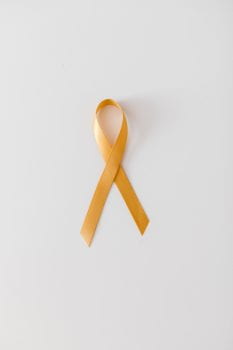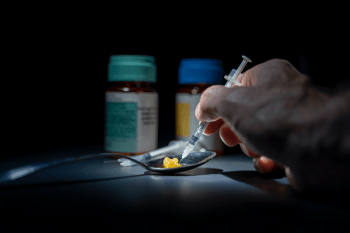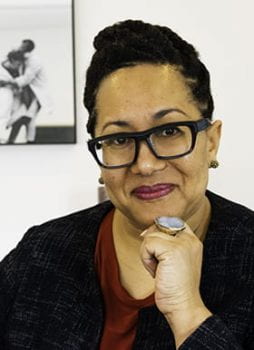Read part one of this two-part blog on environmental justice by practicum student, Katie Wiedeman, MSW candidate.
The Movement for Environmental Justice – Part I

Center for Community Health Partnership & Research Blog Posts

Read part one of this two-part blog on environmental justice by practicum student, Katie Wiedeman, MSW candidate.

Read this blog post about environmental justice and its fight right here in St. Louis.

In this blog post, read more about the concept of “informed consent” in research.

Practicum student Katie Wiedeman, MSW candidate, writes about diagnostic gaps as just one of the inequities in the care of this common women’s condition.

Read more about new NIH Data Management and Sharing Policy.
Read more about the current state of anti-transgender legislation as summarized by MPH candidate, Ola Adebayo.
An MPH student weighs in on the stress of academic life and the mental health crisis taking place on our nation’s campuses.
Written by Ola Adebayo, MPH candidate and student worker at the Institute for Public Health There has been a plethora of unprecedented climate activity in 2021. This year we have seen global sea levels rise to a new high, months of rainfall occurred in the space of a few hours in China, levels of CO2 […]

Written by Ola Adebayo, MPH candidate and student worker at the Institute for Public Health Overdose-related deaths have reached an all-time high with more than 96,000 people dying during the first year of the COVID-19 pandemic. This is a 30 percent increase from 2019, the largest increase ever seen of drug-related deaths in the United […]

The Institute for Public Health is supporting WashU’s new Center for the Study of Race, Ethnicity & Equity (CRE2) as an institutional partner by helping fund its Black Girlhood Studies Lab. According to the lab’s webpage: “The Black Girlhood Studies Lab examines the lives of Black girls historically and ethnographically in community-centered ways. Black girlhood […]
Across the world, COVID-19 (Coronavirus) is affecting the lives of nearly every single person. A special spotlight series presented by the Institute of Clinical and Translational Sciences, features conversations with diverse members of the St. Louis regional community regarding how they view the pandemic, and what strategies they use to thrive in this time of […]
COVID-19 is an equal opportunity virus, but exposure to this virus does not take place in an equal opportunity context. Although only some states and counties provide COVID-19 cases and outcomes by race, the data available indicate that disparities are stark. We know that individuals who live with serious underlying health conditions are at higher […]

The Gun Violence Initiative at the Institute for Public Health turns five in April 2020. This blog is part of a special series related to the key themes of the initiative: What we know, what we need to know, and what to do about this critical issue. Violence prevention is both a science and an […]
The Gun Violence Initiative at the Institute for Public Health turns five in April 2020. This blog is part of a special series related to the key themes of the initiative: What we know, what we need to know, and what to do about this critical issue. U.S. Gun Violence is a Public Health and […]
Do race and sex still play a part in the health equity of women of color? What is really needed to improve the health of black women?
Written by Ebony B. Carter, MD, MPH, assistant professor, Department of Obstetrics and Gynecology, Washington University School of Medicine Embed from Getty Images “In the shadows of our finest medical facilities, where kings and shahs travel thousands of miles for the world’s best medical care, black babies continue to die.” My mother opened nearly every […]
Written by Poli Rijos, MSW, manager for the Center for Community Health Partnership & Research at the Institute for Public Health In early June, I spent eight days in El Salvador. Funding from the Institute for Public Health, the Episcopal Church of the Holy Communion, and my family gave me the opportunity to attend Global […]
Written by Kristen L. Mueller, MD, assistant professor in the Division of Emergency Medicine, Washington University School of Medicine, and Megan L. Ranney, MD, MPH, Department of Emergency Medicine at Alpert Medical School, Brown University On November 7, 2018 the NRA responded to “Reducing Firearm Injuries and Deaths in the United States: a Position Paper […]
Written by Robert Doyle, data coordinator for the REACH Initiative at the Institute for Clinical and Translational Research/Center for Community Health Partnership & Research at the Institute for Public Health Diversity of participation in National Institute of Health (NIH) research became a mandate with the NIH Revitalization Act of 1993, yet nearly 25 years later, […]
Written by Kym Radford, outreach coordinator for the REACH Initiative at the Institute for Clinical & Translational Sciences/Center for Community Health Partnership & Research at the Institute for Public Health Research matters to me. In the late 2000s, a study conducted at Washington University was instrumental in the early detection and confirmation of Alzheimer’s disease—a […]
Community engagement involves conversations, sharing of insights and diverse perspectives that allow consensual problem identification among defined constituencies. Advocacy for identified issues is achieved through coalition and consensus building, constituency and community outreach and networking, communication including negotiation, grassroots organizing, as well as efforts related to organizational development (Adler & Goggin, 2016; Zakus & Lysack, […]
By Emily Luft, Program Director, Alive and Well STL In my work with Alive and Well STL, I have the opportunity to talk to thousands of service providers about the impacts of stress and trauma on our health and wellbeing. I frequently witness providers connecting their individual work to the science of trauma in ways […]
When the conversation moves to mental health, there is a tendency to think about diagnostic categories. This is largely the result of an emphasis on mental illness in public funding for the mental health system. Given limited dollars and resources, we focus on those with critical needs, individuals with serious mental illness. Diseases such as […]
Written by April Houston, MSW/MPH, graduate student at Washington University in St. Louis; and Hilary Broughton, MSW, co-manager of the Center for Community Health Partnership & Research The Center for Community Health Partnership & Research—a joint endeavor of the Institute for Public Health and the Institute of Clinical and Translational Sciences at Washington University in […]
Written by the Discharge Summary Tracking System project team [1] Our local community health centers are bustling with the activity of primary care providers answering their patients’ vital inquiries. But what happens if their question regards a hospital visit of which the provider was never informed? “My patient exclaimed, ‘I’ve been shot!’” said primary care doctor […]
If a creature from outer space came to Earth wanting to collect a specimen capable of disrupting and destroying the health of its own community, pretty much any human would do. If that same creature also wanted to study a living being that ensured the health and wellness of its community, pretty much any animal […]
Written by Jason Q. Purnell, PhD, associate professor in the Brown School When the For the Sake of All report was released two years ago chronicling the significant racial disparities in health and other life outcomes in the St. Louis region, there was much concern about the report collecting dust. We have worked hard to […]
Over the years, the Becker Medical Library at Washington University School of Medicine has worked with various institutions and programs across the St. Louis metro area to provide credible health information resources to the community. Our projects have included training public school librarians on reliable health information resources, working with community health fellows on campus, […]
In 1997, the Office of Minority Health (OMH) undertook the development of national standards to provide organizations and providers with guidance on the implementation of culturally and linguistically appropriate services. Three years later, the National Standards for Culturally and Linguistically Appropriate Services in Health and Health Care (CLAS) were entered into the Federal Register [1]. […]
Written by Melissa Ramel, MS, MPH, RD, LD, associate professor in the Department of Nutrition and Dietetics at Saint Louis University It’s the beginning of a New Year which brings New Year’s resolutions, cold weather, and hope for healthy change. For the HEAL (Healthy Eating, Active Living) Partnership, the community coalition tasked with reducing obesity […]
Written by Matthew Brown, MPH, manager of the Center for Community Health Partnership and Research at the Institute for Public Health The Center for Community Health Partnerships continues to bring together a diverse group of stakeholders working in HIV/AIDS in St. Louis. The group first met last December, and assembled again in September 2015. At […]
On December 1, 2015, Saint Louis Effort for AIDS organized its annual World AIDS Day event. This year’s event was titled “Getting to Zero”: Remembering the impact of HIV/AIDS on our community, and took place at the Missouri History Museum. It included live music, exhibit booths, a names project, HIV testing and other health services, […]
Written by Jessica Healey, marketing and event specialist at Food Outreach For more than 27 years, Food Outreach has continued to be the only nonprofit organization in the greater St. Louis area that focuses on providing vital nutritional support to low-income men, women and children with HIV/AIDS or cancer. An impassioned staff, along with 600 […]
In November, the Centers for Disease Control and Prevention (CDC) released two reports detailing the increasing rates of sexually transmitted infections in the US. As a provider of care for patients with sexually transmitted infections (STIs) and HIV, increasing rates of all STIs are a great concern to me. National STI data indicates that rates […]
Written by Regina L. Greer, vice president of community response at United Way of Greater St. Louis Imagine being a first responder that saves a family from their severely damaged home; a concerned citizen witnessing devastation and grief on the faces of your neighbors on TV; or a parent seeking food, water, and toiletries for […]
The Washington University Record recently reported on a volunteer opportunity for first-year medical students, allowing them to volunteer at City Seeds Urban Farm through Gateway Greening. The experience tied together some of what the students learned during the Washington University Medical Plunge (WUMP), which addressed community health issues including food insecurity and malnutrition.
Written by Kara Lubischer, MUPPD, community development specialist at University of Missouri Extension The HEAL Partnership is working to reduce obesity in the City of St. Louis by increasing access to healthier foods. The problem How close do you live to the nearest grocery store? If you live in the City of St. Louis, chances are […]
Written by Jason Q. Purnell, PhD, associate professor in the Brown School Last year, the For the Sake of All project team released a series of policy briefs and a report that analyzed the data around health disparities in the St. Louis region and outlined a set of recommendations to help close the gap. This […]
Written by Eleanor Peters, epidemiology manager in the Division of Communicable Disease Control Services at the St. Louis Country Department of Public Health. The functions of a health department vary by region based on the priorities of the citizens it serves. Some functions are mandated by state government whereas others are considered best practices and […]
Written by Jason Q. Purnell, PhD, associate professor in the Brown School Several years later, I am still disappointed by how my brief interaction with a talented young man at one of St. Louis’s most challenged high schools ended. I heard him speak passionately of his career plans at a meeting on tackling high school […]